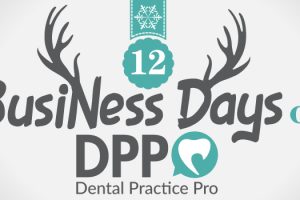Pleasing other people — who could find fault with that? Isn’t it a good thing to consider the needs of others, to be gracious, to be nice? By all means! But for many, the desire to please becomes an addictive need to please others, even at the expense of their own health and happiness. It takes a toll on health, relationships and quality of life, and it drowns out the inner voice that may be trying to protect us from overdoing it.
“As a people pleaser, you feel controlled by your need to please others and addicted to their approval,” writes Harriet B. Braiker, Ph.D., in The Disease to Please. “At the same time, you feel out of control over the pressures and demands on your life that these needs have created.”
I personally know what this is all about, I lived it until my 50’s. It’s great to please people but never at your own expense.
Take this quiz to see whether you can benefit from learning to say no to others more often—and yes to yourself.
1. I put others’ needs before my own, even when the cost to me and my own happiness is great.
__Always __ Most of the time __Sometimes __Never
2. If someone needs my help, I can’t say no. In fact, I often find it difficult to say no. And when I do, I feel guilty.
__Always __ Most of the time __Sometimes __Never
3. To avoid reactions I’m afraid of, I often try to be who others want me to be, to agree with them, to fit in.
__Always __ Most of the time __Sometimes __Never
4. I keep my own needs and problems to myself; I don’t want to burden others with them.
__Always __ Most of the time __Sometimes __Never
5. It’s my job to make sure everyone else is happy.
__Always __ Most of the time __Sometimes __Never
6. I always have a smile on my face and an upbeat attitude, even if I feel sad or angry or hurt.
__Always __ Most of the time __Sometimes __Never
7. I go out of my way to avoid conflict and confrontation; it’s better just to keep the peace.
__Always __ Most of the time __Sometimes __Never
8. I am often on the go, rushing to get things done. When I take a moment for myself, I feel selfish, indulgent and guilty.
__Always __ Most of the time __Sometimes __Never
9. I should always be nice and never hurt others’ feelings.
__Always __ Most of the time __Sometimes __Never
10. I’ll do whatever it takes to get someone to stop being mad at me.
__Always __ Most of the time __Sometimes __Never
11. I hold back from saying what I really think or from asking for what I want if I think someone will be upset with me for it.
__Always __ Most of the time __Sometimes __Never
12. I want everyone to like me…all the time.
__Always __ Most of the time __Sometimes __Never
13. I feel like a failure if I’ve displeased anyone.
__Always __ Most of the time __Sometimes __Never
14. If I don’t make others happy, I worry that I’ll be alone and unloved forever.
__Always __ Most of the time __Sometimes __Never
15. I will change my behavior, at my own expense, to make others happy.
__Always __ Most of the time __Sometimes __Never
16. I spend a lot of time doing things for others, but almost never ask anyone to do things for me.
__Always __ Most of the time __Sometimes __Never
17. If I ask people for help and they agree, I’m sure they must be giving out of obligation; if they really wanted to help, they would have offered without my asking.
__Always __ Most of the time __Sometimes __Never
18. It’s difficult for me to express my feelings when they are different from someone I’m close to.
__Always __ Most of the time __Sometimes __Never
The motivations for being a people pleaser are varied and usually oblivious to this need. Transforming these patterns requires that we understand our pleasing behaviors and motivations, and heal the childhood wounds that usually underlie people pleasing. If you answered True more often than False, you may need support in saying Yes to yourself! Please don’t hesitate to call if you would like to explore this or any other issue.
Written by Cathy Warschaw, CPC, ELI-MP
Founder & Make It Happen Coach
www.UpAllNightCoaching.com/dental
800.660.6707
© Up All Night Coaching, 2016
Do you have a coach? If not, you could be limiting your career success. That’s because coaches help you identify and focus on what’s important, which accelerates your success. They force you to think about your business in ways that you wouldn’t on your own. Now think about any stress you might have, a coach will show you how to take that stress and put it to good use. Athletes and top level Executives have relied on coaches for years to improve their game and careers. If multi-million-dollar executives and athletes rely on coaches to improve, why shouldn’t you? Up All Night Coaching is the answer for all of your coaching needs.





